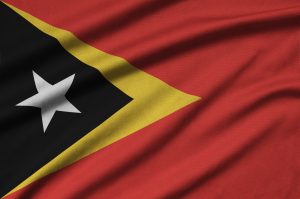Timor-Leste’s opposition party won Sunday’s parliamentary election, meaning independence fighter Xanana Gusmao is likely to return as prime minister in Asia’s youngest democracy.
The final vote count released by the National Elections Commission on Tuesday showed Gusmao’s National Congress of the Reconstruction of Timor-Leste, known as CNRT, won 41 percent of the votes and gained 31 seats out of 65 in the National Parliament. That is just short of the 33 needed for an outright majority, and Gusmao will have to join at least one other party in a coalition to form a government.
Gusmao, 76, an icon of the country’s independence struggle from Indonesian occupation, became the nation’s first president between 2002 and 2007 and served as prime minister between 2007 and 2015. The CNRT’s victory followed a successful presidential campaign in 2022 in which its candidate, Nobel Peace Prize laureate Jose Ramos-Horta, returned to office.
The ruling Revolutionary Front for an Independent Timor-Leste, or Fretilin, received 25 percent of the votes and 19 seats. It promised to accept the election outcome.
The Democratic Party won six seats, the rural-based Khunto Party five, and the People’s Liberation Party four.
A total of 17 parties ran in the election. They were required to have a woman in at least every third position in their party list, and seats were allocated for those with an electoral threshold of 4 percent.
“I’m happy that we are going to respond to people’s concerns and anxiety of national construction that has always been defined in the strategic development plan that has not been carried out in the last six years,” Gusmao told a news conference after the final results were released by the electoral commission.
He pledged to allow the development of the Greater Sunrise oil and gas project, which aims to tap trillions of cubic feet of natural gas that could give Timor-Leste 70 percent of the revenues if gas is piped to Timor-Leste and 80 percent if the gas is piped to Australia.
“Independence doesn’t mean only having flag, president, governor, and parliament, but it means people able to get benefits from independence in terms of the economy,” he said.
Under Timor-Leste’s Constitution, the prime minister acts as the head of government and has more legislative power than the president, who is head of state.
Fretilin and CNRT have blamed each other for years of political paralysis. Tensions between the two largest parties since 2018 led to the resignation of Prime Minister Taur Matan Ruak in 2020 after the government repeatedly failed to pass a budget.
But he agreed to stay until a new government was formed and to oversee the battle against the coronavirus pandemic. His government has operated without an annual budget and has relied on monthly injections from its sovereign fund, called the Petroleum Fund.
His governing coalition is currently made up of Fretilin, the PLP which he heads, and the Khunto Party.
The former Portuguese colony was occupied by Indonesia for a quarter-century and gained independence after a U.N.-sponsored referendum in 1999. Indonesia’s military responded with scorched-earth attacks that devastated the eastern half of the island of Timor.
Timor-Leste’s transition to a democracy has been rocky, with leaders battling massive poverty, unemployment, and corruption as the country continues to struggle with the legacy of its bloody independence battle and bitter factional politics that have occasionally erupted into violence. Its economy is reliant on dwindling offshore oil revenues.
The Association of Southeast Asian Nations this year granted observer status to Timor-Leste ahead of it becoming the regional bloc’s 11th member.
The United States on Monday commended authorities in Timor-Leste for administering a free, fair, and transparent election.
“This election reflects the commitment of the people of Timor-Leste to democracy and peaceful political processes and serves as an inspiration for democracy globally,” said Matthew Miller, the U.S. Department of State spokesperson.
The U.N. estimates that nearly half of Timor-Leste’s population lives below the extreme poverty line of $1.90 a day, and that 42 of every 1,000 babies die before their fifth birthday because of malnutrition.

































